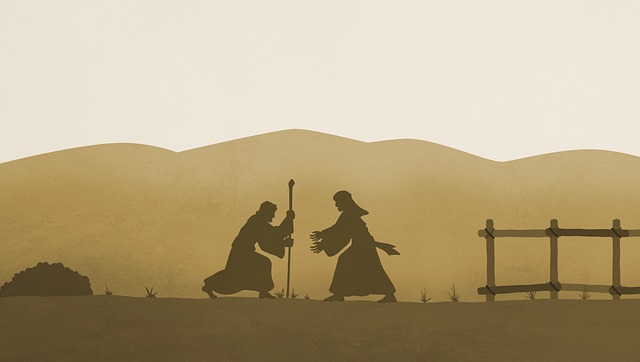Fr Paolo Consonni, MCCJ
I know the feeling of being lost in life, the sadness of no longer having a place to call “home” and of not knowing what to do next. It is a scary experience which can paralyze anyone. Sometimes we become lost in life because of external problems or the bad influence of others, at other times because we follow a dangerous trail of thoughts or act upon inaccurate assumptions. Then we discover that there are indeed very dark places and extremely intricate labyrinths within our minds and hearts from which only God can save us.
Becoming lost in life is never simply a personal issue, because our disorientation greatly affects our relational life, especially our families and other close relationships. It also becomes a social problem. Entire societies and even civilizations can lose their moral bearings. History teaches us that there were periods in which entire communities and nations decided to walk down the path of destruction. In recent years, the way health emergencies, international conflicts, nuclear hazards and the climate crisis – just to mention few recent issues – have been handled, makes me wonder if we are not becoming lost once again. Pope Francis recently remarked sadly: “‘We wish to emphasize that […] there exists a moral deterioration that influences international action and a weakening of spiritual values and responsibility. This contributes to a general feeling of frustration, isolation and desperation.’ We see ‘outbreaks of tension and a buildup of arms and ammunition in a global context dominated by uncertainty, disillusionment, fear of the future, and controlled by narrow economic interests.’ We can also point to ‘major political crises, situations of injustice and the lack of an equitable distribution of natural resources…’ This panorama, for all its undeniable advances, does not appear to lead to a more humane future” (Fratelli Tutti 29).
This Sunday, we will read three powerful parables in chapter 15 of the Gospel of Luke; all of them focused on the theme of being “lost and found.” The objects of the stories are the lost sheep, the lost coin and the lost son. They all symbolize the “missing piece” without which human beings lack a sense of meaning, direction, belonging, or purpose. We long for a love which can embrace our scattered lives and make them whole again (the lost sheep reunited with the others). A love which can help us recover the value of what we are and of what we do (the lost coin). A love which can redeem our past mistakes and offer a fresh start in a place we can call home (the lost son).
But the true protagonist of the three parables, however, is not the “lost” but the “finder.” The shepherd courageous enough to leave the ninety-nine sheep in the wilderness to find the lost one, the woman diligently searching in the dark for the precious coin, the father running out to welcome both sons, first the young rebellious one returning home, and then the resentful elder son unwilling to join the feast.
God is the seeker, and hopefully the finder, of each one of us. How consoling it is to know that at the end of our tortuous life-experiences in which we easily get lost, only joy will remain in God’s heart. All the pain and the tears caused by our egoistic life-style, selfishness, spiritual narcissism, moral rigidity or stubborn rebellion toward God – the usual causes of our going astray – will melt away in the happiness of the celebration: “It was fitting to make merry and be glad, for this your brother was dead, and is alive; he was lost, and is found” (Lk 15:32). Only joy will remain at the end. And the celebration has to be communal since, as members of the human family, our destinies are all interconnected. Everything will be redeemed by God’s merciful love, if we allow God to find us.
That is why the search is ongoing. God continues the search for the lost sheep, the lost coin and the lost son through us, the Church. It is a mission which the Church cannot dismiss, because it is at the heart of its existence. I remember a moving passage of the first encyclical of St. John Paul II, Redemptor Hominis: “The Church cannot abandon man, for his ‘destiny,’ that is to say his election, calling, birth and death, salvation or perdition, is so closely and unbreakably linked with Christ. […] ‘Indeed, as a weak and sinful being, man often does what he would not, and fails to do what he would. […]’ This man is the way for the Church- a way that, in a sense, is the basis of all the other ways that the Church must walk- because man -every man without any exception whatever-has been redeemed by Christ, and because with man-with each man without any exception whatever- Christ is in a way united, even when man is unaware of it.” (RH 14)
Every man and woman, with no exception whatsoever, is searched for by Christ through the Church, including me and you, no matter how lost we become. Hoping that once found, we might in turn become seekers, because no one is saved alone.
(Image: jeffjacobs1990@pixabay.com)


 Follow
Follow


